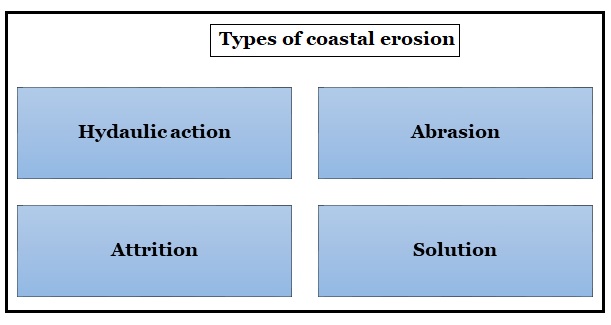900 319 0030
enquiry@shankarias.in
Recently, Union Minister cited that over one-third of India’s coastline is vulnerable to erosion as per the study of National Centre for Coastal Research.
As much as 32% of India’s coastline underwent sea erosion and 27% of it expanded between 1990 and 2018
Goa and Maharashtra have the most stable coastlines in the country.

|
Factors |
About |
|
Waves |
|
|
Sea level rise |
|
|
Sediment loss |
|
|
Human interference |
|
Indian coast is about 7500 km long and characterized by varied landforms and ecosystems.
|
National Centre for Coastal Research |
|